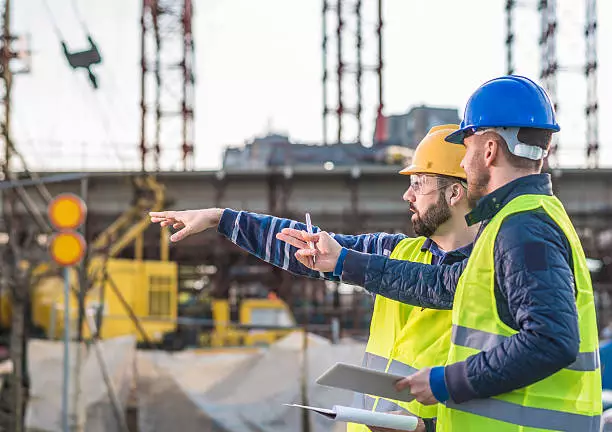Are Construction Workers Essential To The Economy?
In this article, we discuss why construction workers are essential to the economy. The construction sector is crucial to the economy, and its operations are also critical to achieving national socio-economic development goals such as providing shelter, infrastructure, and jobs.
It is apparent that construction activities have an impact on practically every element of the economy and that the sector is critical to the economy’s sustained growth. The worldwide construction sector has been heavily condemned for its poor performance.
A substantial amount of written and anecdotal information suggests that the construction business has one of the highest rates of corruption.
Importance of Construction Workers To The Economy?
A construction worker is a driving force behind all construction that takes place across the world. Construction workers ensure that the building process is completed quickly and thoroughly. They are responsible for executing the fundamental activities necessary for physical work on building projects.
Construction workers’ principal functions include scaffolding, blockading, constructing, and jackhammering. They also contribute to the formation of the basic structure, which prepares the surfaces for concrete layers. Construction workers, even though seemingly sidelined, contribute immensely to any country’s economy in a myriad of ways.
1. Employment
According to statistics, unemployment in Nigeria reached 40% in December 2021, the highest percentage since the pandemic depression, and GDP plummeted by 8.8%. Every year, the construction sector employs about 7 million people and builds projects worth approximately $1.1 trillion.
It is only safe to say that if any industry can lead the revival of the Nation’s economy, it is the construction industry. A fall in unemployment rates is a distinguishing feature of a rebounding economy. A wide range of work opportunities exists in the construction industry, both within and outside a project.
When a contractor uses labor-intensive procedures, these opportunities grow even more. Their labor-intensive strategy promotes employment development during projects, producing earnings for neighborhood people. Plumbers, carpenters, roofers, site overseers, transport workers, and security people, among others, might be hired from the community.
If they include environmental objectives and improve access to basic services for the poor, the right infrastructure projects can not only support employment and business activity. But also lay the groundwork for the “build back better” approach to inclusive and sustainable development that policymakers are advocating.
2. Technological advancement
The majority of companies around the globe are adopting technology. This is not to dismiss human labor as we know it, but technology is available, so why not employ it? Human labor, for example, will always be in high demand in the building industry.
After all, IT professionals must be employed to handle mail and fax correspondence, compile spreadsheets, produce 3D visualizations, and conduct all the other logistical procedures that would usually use time and resources. Currently, it is a requirement by most construction companies to possess technological expertise.
‘Skill Instruction Centers’ and ‘On-the-Job’ training will only be effective if they are not concerned with making a living. Technical expertise increases the literacy level of the economy, if one finds himself outside a construction site, he has a wide array of career prospects in line.
The availability of qualified workers has an impact on the industry since it reduces project execution delays and promotes project quality.
3. Rural development
The socio-economic development of a community’s residents is dependent on greater investment and infrastructure development. Small contractor construction projects in remote communities provide a way for socio-economic development in those communities.
Projects undertaken in rural areas utilize workers residing in the area, this inadvertently leads to development in the area. Construction projects produce jobs, infuse finances and fresh life into communities, and build the infrastructure required to keep the country moving ahead.
Minor construction firms are more prepared to take on small rural projects, and these projects frequently contribute to development by meeting the fundamental infrastructure needs of small towns and utilizing local personnel. The initiatives may have an impact on healthcare, educational institutions, and transportation.
4. Pandemic relief on the economy
The construction industry might be the solution to reviving economies devastated by the COVID-19 epidemic. Previous crises have demonstrated that, while households and private-sector businesses may be hesitant to invest while the economy’s future is uncertain, governments can increase investments in infrastructural development, particularly maintenance schemes, which typically involve simpler and faster approval processes.
The construction industry is reportedly the easiest to find work in, among all other industries. This is an added advantage as the industry opens up after covid sanctions. Due to the changes brought about by the pandemic, the restart of additional non-essential projects will provide obstacles.
A decrease in available or willing labor may cause firms to be understaffed for some time. The pandemic’s aftereffects may disrupt supply chains, since firms may be short on money. The industry would have to figure out how to get past the social distancing laws and project budget cuts.
Of course, such challenges are not unsolvable. Instead, they provide a chance for the sector to quickly adapt and respond to new approaches. The pandemic poses an opportunity for construction companies to revamp their systems.
Conclusion
Construction workers are hardworking, natural specialists, and conscientious about their jobs. They ensure that every construction activity is completed with extreme accuracy and care. That is why we should not underestimate the value of human labor and expertise that goes into the construction of both simple and complex projects.
Even carrying out the technological operations of the pricey equipment would be futile without labor exertion. As a result, construction employees are extremely important to any construction department throughout the world today. Construction sites that were suspended owing to the lockdown are beginning to resume throughout the world.
Due to delayed projects, there will most certainly be an increase in construction during the post-covid-19 world. The industry must figure out how to fulfill the accumulating demand.



